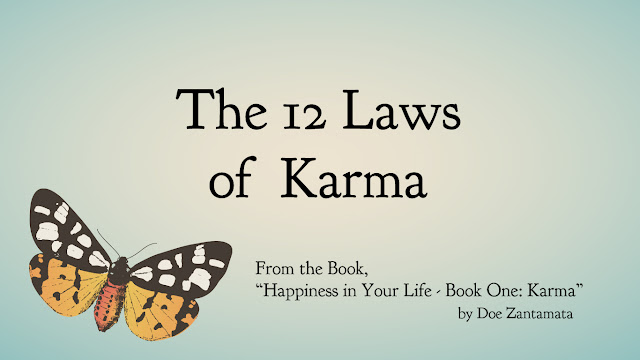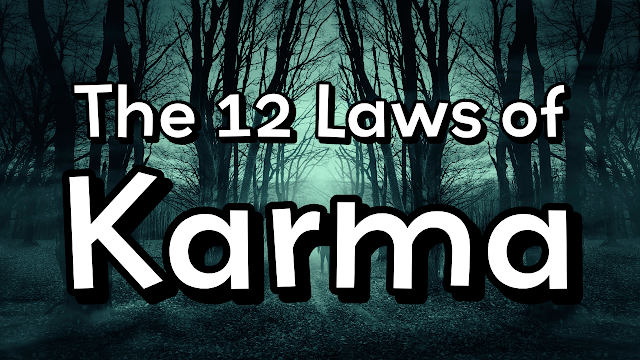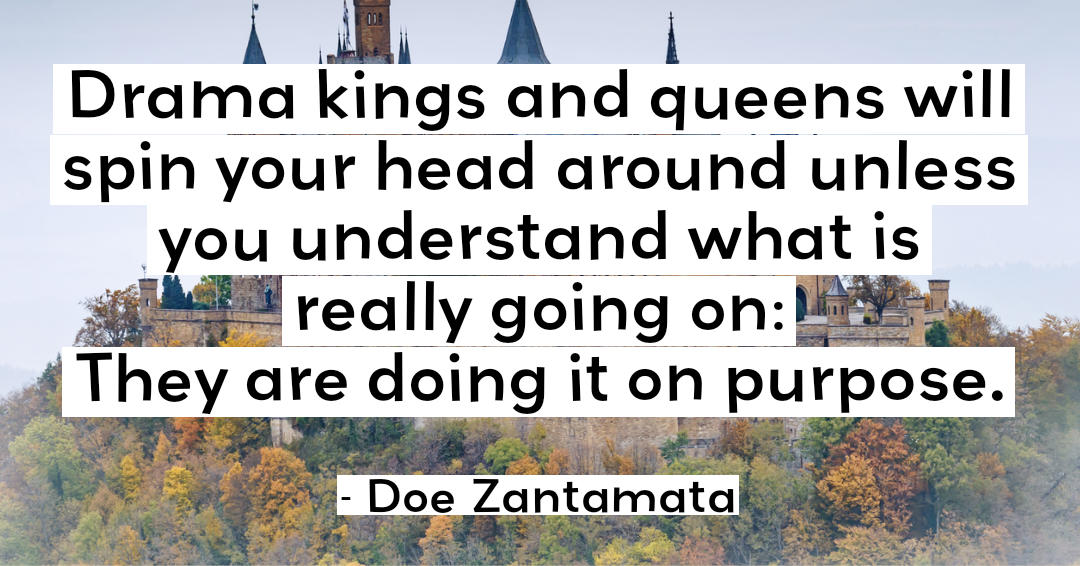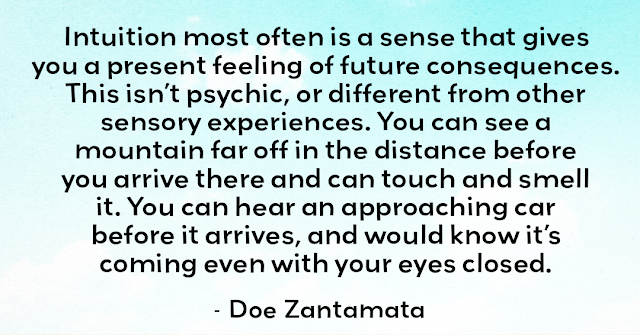Is it really Narcissism or is it just Emotional Immaturity?
The word "narcissist" gets thrown around a lot lately. Apparently only 0.5% to 1% of people actually have Narcissistic Personality Disorder, but if you talk to some people, it seems they've diagnosed every single one of their exes and their friends exes with NPD.
But if it's not NPD, what is it?
Emotional Immaturity.
We all grow older, but not all of us mature. Physically, as long as we eat nutritious foods, our bodies make use of the components and turn us from little children into grown adults.
Mentally and emotionally, we may learn from our parents and other influences in our lives, but if either of our parents were also emotionally immature, they may just have passed down the wrong lessons to thrive in adulthood and relationships. Emotional maturity takes introspection, emotional responsibility and processing, and the ability to reflect, learn, and grow as a person. It's a daily choice and takes thought and effort. Not everyone even realizes that this process needs to happen if they want to enter into healthy, adult relationships.
What does Emotional Immaturity look like?
Phase One
When you meet someone who is emotionally immature in romantic relationships or even friendships, they present themselves to you as the Endearing Five Year Old. They are, sweet, lovable, shy, and agreeable, and seem to pose zero threat whatsoever. You feel very safe and even in charge around them. You may feel protective of them after a short while and find yourself looking out for them in ways that you would for a small child. They give you sweet, thoughtful gifts, often reflecting things you've said you liked, or handmade, home cooked, or otherwise incredibly considerate trinkets and treasures. Not just one or two, but excessively.
This is immediate and so endearing that it can make you feel like you've met someone really special.
Just as you'd open the door to a lost 5 year old, you open the door to your heart very soon to them and trust them fully as the last thing you are expecting is what happens next.
Phase Two
Phase Two comes as a shock. The Endearing Five Year Old thing was an act. Maybe not even an intentional act, that's just how they've learned to present themselves to someone else to get them to like them. But for that time period, usually somewhere between a month and three months (but can be longer), they've been stifling their own feelings and just focusing on you; what you want or what they think you want.
Phase two is when they begin to resent having to act and stifle themselves, although you didn't ask them to and had no idea this is what was even going on.
Now you get to meet their other half, The Unruly Teenager.
The Unruly Teenager will disagree with just about anything you say. Even if they've agreed to it before as the Endearing Five Year Old. Teenagers seek to individuate from their parents, and they often do that by disagreeing, arguing back, or starting arguments if you're not willing to do it.
These arguments can be over absolutely nothing. If you don't give them any material, they may out of the blue criticize the way you do something ordinary and perfectly fine, some imagined look you gave them or something you said that they're twisting into meaning something derogatory, or they may say something super mean and later tell you they were joking.
They say things like, "You always have to have it YOUR way" and "You ALWAYS think you're right!" and "We always do what YOU want!" and other things that remarkably sound like things kids say to their parents when they are mad at them.
Phase One put you on a pedestal, and phase two swats you right off.
This is so shocking and off-putting. You were being yourself and really thought you had an amazing connection with someone and now they're like Jekyll turned Hyde and you have no clue what's happened.
Well what happens next is that they turn back into the Endearing Five Year old, complete with apologies and excuses. Like that they've been hurt in relationships before, they're scared of trusting, they're not used to being in a relationship, they've never cared about someone as much as they care about you...all sorts of other things that are designed to trigger your sense of protection towards them again.
They try to talk you out of what you felt and what you saw of how they acted and how it hurt you. They say that this is part of the "getting to know each other" process and that they just let things go and that you should just let things go and don't dwell on them as if you're the problem by trying to address their behavior instead of their behavior being the problem. They are essentially refusing to take responsibility for their words and actions, and if you agree to it once, it will happen again and again as now you've accepted to absorb the consequences of their choices.
Just as you'd forgive a five year old for having a tantrum because they were tired and cranky, you forgive them. And forgiveness itself is great, but the mistake is to trust that this was a one time thing and that you'll get back that sweet passive person you first met. You won't. It was never them. That person will show up between arguments and then the Unruly Teenager will seamlessly take their place.
Emotional Immaturity means acting in very hurtful ways without consideration for anyone else.
-->> If they become jealous, not even by anything you did, they will do something to try to make you jealous. In their childish mind, you hurt them, so they are going to get revenge and hurt you to show you what it feels like.
-->> If they feel ignored, they will ignore you on purpose. They will try to get a reaction from you and will feel as though they've won when they see you upset. That will make them feel as though they are in control.
These are just a couple of examples, but if you've lived this, you know exactly what it looks like.
Instead of having a partner on your side, you feel as though half the time you have an opponent who you're not trying to beat or win against at all, but can't seem to keep the peace with.
Maybe they even told you that everyone else in their past has been controlling or deceptive and you're the best, only good person they've ever met. What that does is make you feel special and important, but what it really means is that this is their pattern and you'll eventually be another one in their blame pile.
What to do?
You can't grow someone else up. It's not your job and if you try and "help" them to grow up, they may be so grateful for awhile (as the five year old) and then turn on you and tell you that you're controlling (as the unruly teenager).
If you want a real relationship, it has to be peer-to-peer from the start.
You can't take on the role of the parent and expect that this will become something it never was.
If what attracted you to them was that they were in need of rescue and they were so kind and appreciative, though your intentions were pure and good, that is a big sign that this was off from the start, and you unknowingly did become their mom or dad in those early days.
Helping people is wonderful, but your closest relationships are going to affect you too much to be anything other than peer-to-peer, mature, supportive, and real. If you take one of these on by accident, it's going to spill over and negatively affect all of your other close relationships and you will lose yourself trying to fix someone else.
In every life, problems occur and friends are supposed to be there for each other. Key words, there for each other. That is a stark difference from a one sided vacuum who creates problems when there are none and acts like you're against them when you aren't. Relationships are supposed to build you up, not tear you down.
Detach from this type of relationship or watch that you don't fall into one in the first place.
If you have been betrayed or really hurt in the past, the Endearing Five Year Old routine may have been exactly what drew you in to them in the first place, because you felt safe around them and thought that they would never hurt you.
It's hard to recognize, but helps to listen to them and how they talk about their past, friends, family, and how they treat people in daily life. If there is a big difference between how they treat everyone and talk about them when they're not around, don't ignore your own eyes and ears and think that you'll be treated any different down the road. They are showing you what they believe about people and you are a person.
You don't have to hate on or judge anyone who is like this. You wouldn't hate on a five year old or a teenager for acting like a five year old or a teenager. But you wouldn't date them or think you could have a relationship with them either. And you wouldn't try to fast forward grow them up just so they'd be a good match for you. Know that some people can be 30, 40, 50 or more on the outside but they're little kids emotionally. Chances are, they don't realize it and it causes them a lot of pain in their lives. But it's going to be up to them to realize it and do their own work to mature out of it to become a solid person in the lives of others.
It may even be that it's exciting to them to think that they are competing and winning against people in their lives and they do not want to change. Peace may be boring to them. Whatever the case, let them be who they feel they need to be to get by in this world.
Take care of your own heart and guide your own life, filling it with people who you can accept, appreciate, and feel comfortable around today as they are -- as they have chosen to and worked to become.
Your life will be so much better for it, and so will the lives of everyone else you hold dear.
by Doe Zantamata
Learn more about how to become immune to harmful patterns in Doe's book, "Happiness in Your Life- Book Four: Trust" available on Amazon in ebook or Paperback:












such an import article! thank you for clarifying and helping with this information.
ReplyDeletethank you always
ReplyDeleteI've been told there is no difference between narcissism and extreme emotional immaturity. It seems that many narcissists were the golden children in emotionally neglectful households.
ReplyDeletenailed it, I'm one of the two.
ReplyDeleteI see this IQ test. You know my path. I'm still reeling.
DeleteI'm embarrassed to say this. I have a song in my heart. Cake/Short skirt long jacket. I feel like I'm exposing myself and apologize if it's required. The term "why buy the cow when you can get the milk for free" applies here. I say the writer is more important than the words. I may have a library coming soon.
DeleteNarcs represent much more than 0.5-1% of the population. "The lifetime rates of narcissistic personality disorder are estimated at 1% in the general population; and between 2% and 16% in the clinical population. A 2010 review found rates of NPD of up to 6% in community samples, and that the yearly number of new cases of NPD in men is slightly greater than in women." https://en.wikipedia.org/wiki/Narcissistic_personality_disorder
ReplyDelete" [Narcissism is] a personality disorder characterized by a long-term pattern of exaggerated feelings of self-importance, an excessive craving for admiration, and struggles with empathy. The causes of narcissistic personality disorder are unknown, but theorized to be linked to certain types of traumas. The condition of NPD is included in the cluster B personality disorders.
Personality traits of persistent grandiosity, an excessive need for admiration, and a personal disdain and lack of empathy for other people. As such, the person with NPD usually displays arrogance and a distorted sense of personal superiority, and seeks to establish abusive power and control over others." https://en.wikipedia.org/wiki/Narcissistic_personality_disorder
"How common is narcissistic personality disorder? Experts estimate that up to 5% of people have NPD. Narcissism is one of 10 personality disorders. These disorders cause people to think, feel and behave in ways that hurt themselves or others. A narcissist is a common catchphrase describing someone who acts self-absorbed or vain. What many people don’t know is that narcissism, or narcissistic personality disorder (NPD), is actually a serious condition.
If you have a NPD diagnosis, others may see you as only concerned about your wants and needs or having a never-ending need for compliments. But inside, you may feel insecure, less-than and empty. Having NPD makes it hard to relate to others or have genuine self-worth. It can affect relationships with your family, friends and co-workers." https://my.clevelandclinic.org/health/diseases/9742-narcissistic-personality-disorder
Isn't the issue more complex than childish behaviour when you consider that narcissism as a disorder has serious consequences? Part of the diagnosis of narcissism is that people who have it have not grown up and do not form lasting relationships with other people as a result - and as you outline - . I come from a family of narcissists. Not just my own family but most of my cousins too. They are insufferable people, unbearable and totally childish. I have tried from time to time to connect on little levels only to find myself being discounted over and over. I can't compete for status and money oh what a big deal. I am a genuinely nice person who's had to do a lot of work to get out of the family dynamics; I was rejected by both parents in favour of a specific child they lavished all their attention on. Sound familiar? None of them have any genuine feelings for anyone else except their codependent partners. Their children have grown up in their image and are equally brittle and spit the dummy whenever they perceive a slight [which wasn't intended].
So my apologies for such a lengthy post but I feel it's important to acknowledge just how serious the disorder is for everyone affected by narc behaviour. And to acknowledge that the latter comes from never having grown up as an adult and still being a child requiring all the attention anyone could possibly give them. Over and out.
After exploring a few of the blog posts on your web site, I
ReplyDeletereally like your way of blogging. I saved as a favorite it to my bookmark
website list and will be checking back soon. Take
a look at my web site as well and tell me how you feel. 부산오피
The information in the post you posted here is useful because it contains some of the best information available. Thanks for sharing it. Keep up the good work Pain Doctor Edison Nj
ReplyDeleteBayburt
ReplyDeleteKars
Batman
Urfa
İzmir
LRE
Denizli
ReplyDeleteKonya
Denizli
ısparta
Bayburt
4V3TT5
I see what you did there! Great job showing the issue in the basics of life and not as a one word diagnosis.
ReplyDeleteankara
ReplyDeletesakarya
tekirdağ
kastamonu
amasya
WWBWCE
https://titandijital.com.tr/
ReplyDeletemersin parça eşya taşıma
osmaniye parça eşya taşıma
kırklareli parça eşya taşıma
tokat parça eşya taşıma
VLUL4
9637B
ReplyDeletebuy primobolan
trenbolone enanthate for sale
testosterone propionat
https://steroidsbuy.net/steroids/
halotestin for sale
buy steroid cycles
sustanon
buy deca durabolin
buy winstrol stanozolol
22D4E
ReplyDeleteorder testosterone enanthate
parabolan
masteron
sustanon for sale
steroid cycles for sale
peptides for sale
order oxandrolone anavar
pharmacy steroids for sale
buy masteron
388E4
ReplyDeleteMaraş Parça Eşya Taşıma
Urfa Lojistik
Etimesgut Boya Ustası
Isparta Lojistik
Kırklareli Şehir İçi Nakliyat
Eskişehir Şehir İçi Nakliyat
Poloniex Güvenilir mi
Artvin Parça Eşya Taşıma
Gümüşhane Lojistik
AF5BF
ReplyDeleteMersin Lojistik
Okex Güvenilir mi
Tekirdağ Cam Balkon
Sivas Lojistik
Muş Lojistik
Rize Evden Eve Nakliyat
Malatya Parça Eşya Taşıma
Ünye Petek Temizleme
Kırşehir Şehir İçi Nakliyat
76F8B
ReplyDeletehttps://referanskodunedir.com.tr/
Narcissism is a personality trait characterized by an exaggerated sense of self-importance, a preoccupation with fantasies of unlimited success, and a lack of empathy for others. Individuals with narcissistic traits often seek excessive admiration, believe they are uniquely special, and exploit interpersonal relationships for personal gain. While some degree of narcissism is common, a narcissistic personality disorder involves pervasive patterns of behavior that significantly impact a person's functioning and relationships.
ReplyDeleteuncontested divorce in virginia
virginia statute of limitations personal injury
abogado de accidentes de semi camiones
northern virginia personal injury attorney
bufete de abogados de accidentes de motocicleta
truck accidents attorneys
58874
ReplyDeletegörüntülü sohbet kadınlarla
bilecik canlı görüntülü sohbet odaları
Artvin En İyi Ücretsiz Sohbet Siteleri
hatay sohbet muhabbet
mobil sesli sohbet
isparta kadınlarla ücretsiz sohbet
Adana En İyi Görüntülü Sohbet Uygulaması
Bayburt Telefonda Rastgele Sohbet
amasya mobil sohbet sitesi
3EF12
ReplyDeleteBinance Referans Kodu
Dlive Takipçi Satın Al
Ön Satış Coin Nasıl Alınır
Twitch İzlenme Satın Al
Coin Nasıl Üretilir
Fuckelon Coin Hangi Borsada
Parasız Görüntülü Sohbet
Bitcoin Nasıl Üretilir
Parasız Görüntülü Sohbet
A015B
ReplyDeleteReferans Kimliği Nedir
Kwai Beğeni Hilesi
Parasız Görüntülü Sohbet
Referans Kimliği Nedir
Bonk Coin Hangi Borsada
Vector Coin Hangi Borsada
Aptos Coin Hangi Borsada
Twitter Retweet Satın Al
Linkedin Beğeni Satın Al
35178
ReplyDeleteokex
kömür sabunu
bitexen
mexc
kaldıraç nasıl yapılır
binance referans kod
bitcoin nasıl üretilir
canli sohbet
mobil 4g proxy
67069
ReplyDelete----
----
----
----
----
----
----
matadorbet
----
8B66D
ReplyDeletePorto Coin Yorum
Lto Coin Yorum
Stmx Coin Yorum
Loom Coin Yorum
BTC Son Dakika
Egld Coin Yorum
Bitcoin Yorum
Algo Coin Yorum
Mxc Coin Yorum
1E537
ReplyDeletewhatsapp görüntülü şov
I never realized this topic could be so accessible! The way the writer has broken it down is absolutely brilliant—hats off to them for making it all so understandable.
ReplyDeleteVisit our link for ISO Certification in Dammam
AA27143835
ReplyDeleteviga
vigrande
bufalo içecek
novagra
lay era
stag
sertleştirici
bayan azdırıcı damla
vega
7A7B9652C0
ReplyDeletegreen temptation
ücretli show
görüntülü şov
bayan azdırıcı damla
ereksiyon hapı
vigrande
skype show
viagra
canli cam show
F2DDDB51D2
ReplyDeletegörüntülü şov whatsapp numarası
cialis
cam show
ücretli şov
lifta
whatsapp ücretli show
bufalo çikolata
whatsapp görüntülü show güvenilir
performans arttırıcı
49748F0BF3
ReplyDeletebayan azdırıcı damla
telegram show
vigrande
maxman
green temptation
delay
sildegra
performans arttırıcı
cam show
259FA34BE8
ReplyDeleteviga
görüntülü show
sinegra 100 mg
delay
bufalo çikolata
canli web cam show
skype show
ücretli show
ücretli şov
270BC276F2
ReplyDeleteinstagram ucuz beğeni
D9BA0A6EC0
ReplyDeleteşov
cialis
steroid satın al
FEE2A9D912
ReplyDeleteinstagram da takipçi arttırma
A0056B91E5
ReplyDeleteTelegram Airdrop Botları
Telegram Güvenilir Coin Botları
Telegram Para Kazanma Grupları
Telegram Para Kazandıran Botlar
Telegram Mining
BB5F9BF1B6
ReplyDeleteTelegram Madencilik
Yeni Telegram Para Kazanma Botları
Telegram Para Kazanma Grupları
En İyi Telegram Para Kazandıran Botlar
Telegram Farm
6C7D5C0923
ReplyDeleteYeni Telegram Kripto Oyunları
Yeni Telegram Coin Botları
Telegram Coin Kasma Nedir
En İyi Telegram Coin Botları
Yeni Kripto Telegram Botları
FCF9A2B717
ReplyDeleteTon Coin Kazandıran Oyunlar
Telegram Coin Kasma Botları
En Yeni Telegram Airdrop
En İyi Telegram Coin Botları
Telegram Para Kazanma Oyunları
795B289B3E
ReplyDeleteTelegram Para Kazanma Botları
En İyi Telegram Coin Oyunları
Telegram Coin Oyunları
Telegram Para Kazanma
Binance Hesap
F594FA0352
ReplyDeleteeski mmorpg oyunlar
sms onay
mobil ödeme bozdurma
instagram takipci satin alma guvenilir
-
B96DC73FA6
ReplyDeletemmorpg oyunlar
sms onay
güvenilir mobil bozum
instagram takipci satın alma
-
253664023D
ReplyDeletekiralık hacker
kiralık hacker arıyorum
kiralık hacker
hacker arıyorum
kiralık hacker
Emotional immaturity often masks as charm before turning into conflict. Relationships need peer-to-peer balance, not parent-child dynamics. Protect your heart, seek maturity, and surround yourself with people who uplift and grow with you.CE Mark Certification in Uganda
ReplyDeleteHonestly, this was such a refreshing read. It’s not often you come across someone who can take a topic like this and explain it in a way that actually makes sense. Big kudos to whoever put this together, it helped a lot! visit our link: diploma in computer science after 10th
ReplyDeleteThank you for this insightful article. It offers a nuanced perspective on emotional immaturity and its impact on relationships, distinguishing it from narcissism. The phases described resonate with real-life experiences, providing clarity and understanding.
ReplyDeleteCloud Account Management
Cloud Financial Management
Cloud Cost Management
Cloud Spend Management
CloudThrottle
cloud cost optimization
AWS Cost Estimation Tools
AWS Cost Analysis Tool
So glad I stumbled upon this post! It answered questions I’ve had for a long time in such an easy-to-follow way
ReplyDeleteFor information about product design engineering visit NTTF